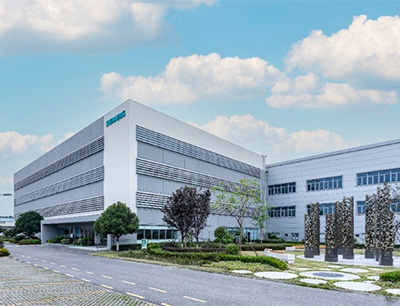
The World Economic Forum (WEF) officially announced the 11th batch of global lighthouse factories Mid of December 2023, and Siemens Industrial Automation Products Chengdu Production and R&D Base, also known as Siemens Industrial Automation Products, Chengdu (SEWC), has been awarded the "Sustainability Lighthouse". SEWC is a practical example of Siemens' technology-enabled sustainable development. Since 2019, the factory has reduced energy consumption per unit product by 24 percent and production waste by 48 percent, while increasing production by 92 percent through the establishment of a comprehensive digital energy system, the application of cutting-edge technologies such as artificial intelligence (AI), and the adoption of advanced eco-design concepts, achieving win-win outcomes in both economic and environmental benefits.
"As a 'Zero-carbon Pioneer' who knows the unity of knowledge and practice, Siemens has been taking its factories as the practice grounds and incubators for green technologies. The 'Sustainability Lighthouse' award recognizes our achievements in promoting sustainable development through digital technology," said Wang Haibin, Executive Vice President of Siemens Ltd., China and General Manager of Digital Industries, Siemens Greater China. "Not only will we continue to implement the concept of sustainable development in our own operations and product design, but we will also empower our eco-partners with our green products, green technology and green experience, thus driving the industry chain towards a zero-carbon future."
SEWC is Siemens’s first digital factory in China, and a model of Siemens’ green factories: By using “SiGREEN”, a Siemens solution that enables reliable calculation and tracking of a product’s carbon footprint, the factory realizes the transparency of the carbon footprint of its products and organization, providing accurate data and technical support for carbon reduction decisions. Meanwhile, the factory’s comprehensive digital energy management system enables predictive maintenance covering the entire manufacturing process, which improves energy efficiency while avoiding additional consumption caused by unplanned downtime, and reducing energy consumption per unit product by 24 percent. In terms of waste disposal, the factory adopts AI identification and AGV automated logistics equipment to improve the automation efficiency of waste classification and recycling, effectively avoiding waste. In product manufacturing, SEWC adheres to the concept of green design for industrial products, applies digital twin in the product design and commissioning process, and adopts sustainable materials and packaging, striving to achieve zero-waste manufacturing. The plant reduced CO2 emissions by approximately 3,000 tons in fiscal 2022 through resource efficiency improvement projects such as printed circuit board design optimization to reduce trimmings and reuse of ESD vinyl boxes to replace logistics packaging.
Selected by the WEF in collaboration with McKinsey & Company, the "Lighthouses" represent the advanced level of smart manufacturing and digitalization in the global manufacturing industry, and SEWC is one of the first "Lighthouses" certified in 2018. The WEF introduced the new designation of "Sustainability Lighthouses" in 2021 to recognize the green role models of "Lighthouses" that promote ecological sustainability with advanced technologies. SEWC has been recognized as one of the world's 13 "Sustainability Lighthouses". This is the second time that Siemens has been awarded the title of "Sustainability Lighthouse" after its Amberg factory.